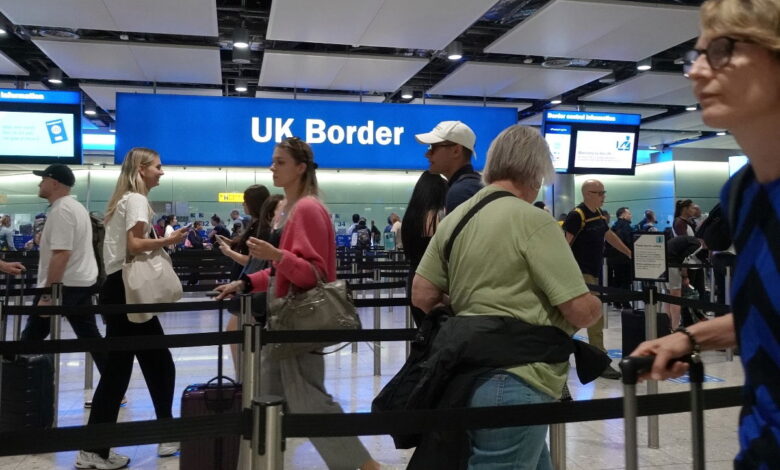Residents in UK could be refused re-entry « Euro Weekly News


British residents, normally requiring a visa may face problems upon re-entry following new eVIsa scheme
Credit:Shutterstock:1000 words
The UK’s new eVisa system rollout has raised concerns among migrant rights groups, warning it could cause re-entry issues for British residents due to technical glitches and unprepared overseas airport staff.
The newly-introduced system of eVisas could cause some significant entry issues for UK residents, when they return back home via national airports. Migrant rights groups have warned that residents in Britain with rights to residency could be prohibited from entering when returning from abroad due to the switch to digital visas and ongoing technical issues.
The government has extended the deadline by three months for the switch over to digital visas or eVisas, meaning that it will not come into place until March 2025, even though the original date was set for December 31. However, there are concerns from campaigners that this will not be enough time for overseas airport staff and border officials to adapt to the new system and that British travellers could potentially be stranded abroad and refused travel back to the UK.
EVisas: UK may be prepared for the change, overseas travel staff won’t
The decision to delay the move to digital visas as accepted proff of British residency rights was announced last week by the Home Office. Postponing the deadline has been welcomed by most, but concerns remain. In a letter to the Home Office, following the delay, Immigration Law Practitioners’ Association (ILPA) and EU citizens’ rights group the3million said: “Based on our previous experience, we are emphatic that this message will not filter down to every carrier, every check-in staff member and third party, and every boarding gate staff member.” Here, the implication is that even though Britain may be prepared for the change, overseas travel staff will not. Add to this, government policy which stipulates that if a passenger is denied access to Britain, the transport operator is then responsible for taking them back. In the letter it said: “Carriers, being commercial organisations, are risk averse. Therefore, unless they have received confirmation from UK authorities that someone has permission to travel, they will very likely err on the side of caution and deny that person boarding.”
Concerns include the fact that passengers may not have their documents up to date and that they may be forced to pay the financial or emotional consequences in the case of being denied entry, which is unjust. Monique Hawkins, policy and research officer with the3million said that the responsibility lies with the government and not with individuals.
EU citizens in the UK using EVisas but problems already evident
In the UK, the eVisa system is already underway for EU citizens in the UK. This has already seen some difficulties emerging. Hawkins commented: “We’ve seen how technical errors push people into losing job opportunities and tenancies, being refused access to services and having difficulties travelling. It’s clear the current system is not fit for purpose.”
Despite support services being available, transport operators cannot always check a passenger’s immigration status due to the fact that the helplien only operates during British daytime and can sometimes mean waiting for over an hour for an assistant to answer the call.
So far in the UK, 3.1 million people have accessed their eVisas by opening an online UK Visas and Immigration (UKVI) account. From March 2025, the old biometric residency permits (BRPs) will be ineffective as proof of immigration status. Passport ink stamps and visa vignettes – which came before BRPs – will hopefully still be valid.
Problems concerning the eVisa scheme are already prevalent including problems accessing child benefit, bank issues and many technological problems which prevent access to the online eVisa. The Home Office has been blamed for introducing a system that is already failing and which has left people “in darkness.”




